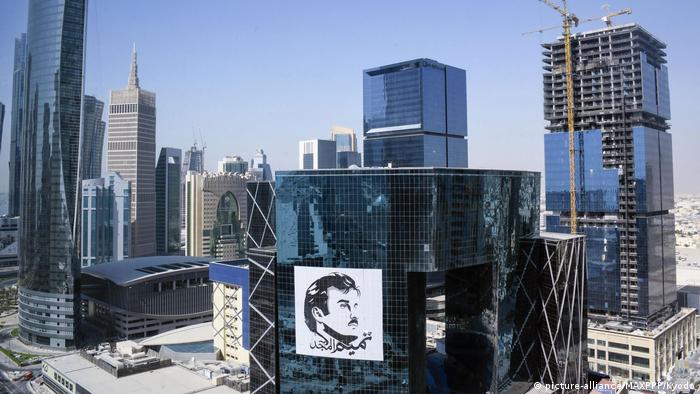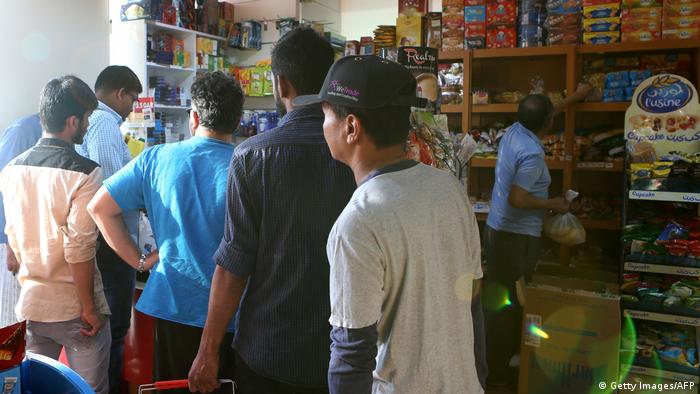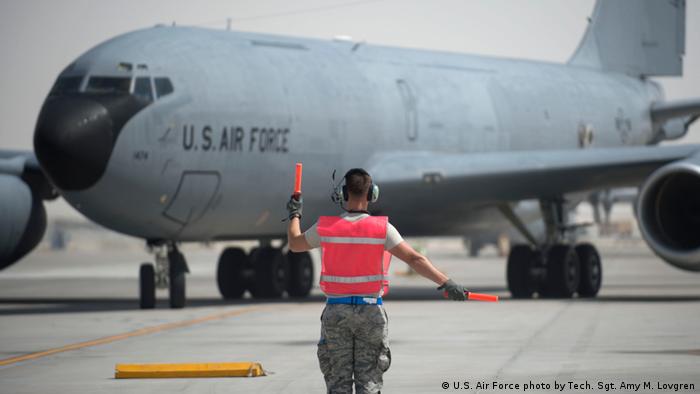The Saudi Arabia-led Blockade was a shock for Qatar. Meanwhile, the country seems to have more than recovered: The economy is growing and the leadership is full of determination and self-awareness.

“What Crisis?” This is imposed by the answer – no matter whom you ask in Qatar after the Blockade, the Saudi Arabia and ally, the Arab States, one and a half years ago, to the Gulf Emirate.
This is also the answer of Nasir Ali, a Qatari police officer when I meet him in a supermarket in Doha, where he buys cucumbers. He asks me to follow him, the shelves filled with bottles of milk and cheese produced on an air-conditioned farm 60 kilometers outside the city.
“What if the Saudis and the Emiratis don’t leave us things about their air space to fly in? We will make our own. Look at that,” he says. His eyes glow with Pride to the successful manufacture of perishable food in the desert land. “We have no lack.”
Warehouse full of Goodies
In June 2017 Saudi Arabia, the United Arab Emirates, Egypt and Bahrain had a trade and travel banned to Qatar and the borders closed to stop imports on which the country depended. Doha strengthening the dairy and animal production and the food security programme. Within a few months, succeeded in Qatar, which imports divert and discharge at the new Hamad port, the government built for about seven billion dollars.
The lack of the panicked hoarding caused, lasted only a few days. In the meantime, the camps are full with Argentinean beef, German caviar, Iranian vegetables, and other Treats from around the world.
“We do not want Saudi products and have asked the shops to remove what is left of it,” stressed Nasir Ali.

Hamster purchases in the Qatari capital Doha, the crisis did not last long
With the Embargo in the States Alliance wanted to call to be diverted to the Emir of Qatar, to support the Islamist Muslim brotherhood, which Saudi Arabia and its allies as terrorists. The governments called on Qatar, any help for the Islamists to recruit and to close its international news channel Al-Jazeera. You throw the transmitter to the rebellions of the so-called Arab spring fueled.
Qatar refused to comply with the requirements. And the country has since shown itself to be much more resilient than it expected its neighbors.
Reliable full bags
This resistance is strengthened by the feeling, from Saudi-Arabia for far too long pushed around. But above all, it is made possible by the overflowing state coffers. Qatar broke its state funds in the amount of about 340 billion dollars, as the Boycott began.
And the country can not only survive, but even the $ 200 billion infrastructure projects for the 2022 football world Cup lift – partly because of the natural gas reserves of Qatar. It is the third largest in the world. The resulting wealth made the Nation that was known to dive up to the 1970s, only for the beads, to the state with the highest Per capita incomes in the world.

Billion project – the construction of the stadium, Ras Abu Abud for the football world Cup in 2022
Although the Blockade had also a negative impact: decline in real estate prices, losses of the national airline Qatar Airways as well as less tourists from the other Gulf States. But 18 months later, Qatar seems to have recovered.
According to the International monetary Fund, Qatar’s economy continued to grow. In December, the global credit rating Agency S&P revised the Outlook for Qatar to stable from negative.
New opportunities for businesses
Ibrahim al-Emadi is a member of the second richest family in Qatar, a Cousin of the Minister of Finance of the country. He takes a dusty blue Vase with Arabic calligraphy in the Hand and claims to be centuries old. Antiques are his Hobby. Emadi leads to a number of companies dealing with hospital equipment, cyber security and real estate.
“We’re doing great. Us had anything Better happen,” he says about the Blockade. “I’m not a dealer anymore. I am the Agency for our imports.”
Emadi says that his company by the elimination of the Saudi and Emirati achieved between trader 40 per cent more profit.
His balance sheet, he does not disclose. However, he is Convinced: “We have the full support of our government. You say that You want the business, we are here to help you with money, and everything else, do it.”

Pressure medium – the Al-Udeid Air Base in Qatar, a base for the United States
Qatar urged its businessmen to take the Initiative, introduced to the state itself a major task: He has strengthened its defense capability. He decided, tens of billions of dollars to advanced weapons systems. He also announced the purchase of 36 American F-15 fighters, twelve French Rafale fighter jets and 24 Eurofighter Typhoon Jets. Qatar will begin later this year with the construction of a new naval base and plans to double its naval units by 2025.
More soldiers to recruit
But to fill the shelves in the shops and billion for arms spending, is one thing – the troops increase. Only every ninth inhabitant of Qatar is Qatari citizens – a total of 300,000 out of a total of 2.7 million inhabitants. A major limitation, if the country wants to expand its armed forces. So far, Doha has set largely on soldiers from other countries, such as Sudan and Pakistan.
To compensate, Qatar extended the national service programme from three to twelve months, and women on a voluntary Basis registered. “For the first Time our women will join the army,” says Emadi.
For the actual defense of Qatar, Al-Udeid Air Base. It is the largest military base in the U.S. in the Region. The Qataris had every reason to be worried, as the US President Donald Trump at the beginning of the Blockade, Saudi Arabia and Qatar. Doha, operating in Washington, successfully lobbying for his cause and offered as an Extra, to expand the air base to make room for the families of 10,000 American soldiers that are stationed there.
The Blockade remains
The tensions have worsened since June of 2017, but the distance between the neighbors has grown.

The Gulf cooperation Council without him, Qatar’s ruler, Sheikh Tamim bin Hamad al-Thani
In November, Doha announced plans to leave the OPEC. Qatar is the smallest member, so the official justification, and would prefer to focus on the production of gas. Observer values the exit, however, as a criticism of the organization, which is considered by the Saudis controlled.
In a further snub, the participation of the Qatari Minister at the summit of the Gulf cooperation Council (GCC) in Riyadh was – instead of the Emir. According to media reports, Qatar did not believe that the Saudis wanted to discuss at the summit are serious about peace, and therefore saw no occasion for them due to the presence of the Emir.
Noha Aboueldahab of the Brookings Doha Center says the Blockade have changed the relations between the Gulf States – perhaps for ever. “Unless there is a fundamental change in the governments of these countries,” she says. “It will take a long time until we have a real rapprochement between Qatar and the blocking States are experiencing.”
Qatar sees itself, in its course through the tarnished reputation of the Saudi crown Prince Mohammed bin Salman’s confirmed. The increase in the number of deaths in the Yemen war, the imprisonment of women’s rights activists, as well as the murder of journalist Jamal Khashoggi had recent strong criticism of Salman.
In the supermarket Nasir Ali says: “you accuse us of supporting terrorists. What is with Khashoggi?” He added: “Who killed Khashoggi? The Saudis are killing their own people. We love our Emir.”

